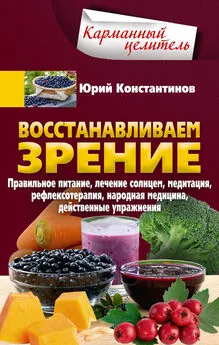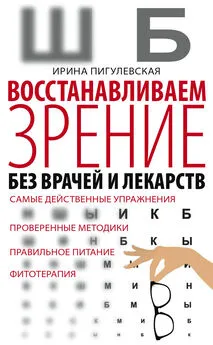Ирина Брехт - Правильное питание как минное поле
- Название:Правильное питание как минное поле
- Автор:
- Жанр:
- Издательство:ООО «ЛитРес», www.litres.ru
- Год:2019
- ISBN:нет данных
- Рейтинг:
- Избранное:Добавить в избранное
-
Отзывы:
-
Ваша оценка:
Ирина Брехт - Правильное питание как минное поле краткое содержание
Правильное питание как минное поле - читать онлайн бесплатно ознакомительный отрывок
Интервал:
Закладка:
8. Steven W, Lichtman et al. Discrepancy between Self-Reported and Actual Caloric Intake and Exercise in Obese Subject. 1992.The New England Journal of Medicine.
9. Mahabir S et al. Calorie intake misreporting by diet record and food frequency questionnaire compared to doubly labeled water among postmenopausal women. Eur J Clin Nutr. 2006 Apr; 60(4): 561–565.
10. de Vries JH et al. Underestimation of energy intake by 3-d records compared with energy intake to maintain body weight in 269 nonobese adults. Am J Clin Nutr. 1994 Dec;60(6):855—60.
11. Hebert JR et al. Social desirability bias in dietary self-report may compromise the validity of dietary intake measures. Int J Epidemiol. 1995 Apr;24(2):389—98.
12. L J Martin et al. Comparison of energy intakes determined by food records and doubly labeled water in women participating in a dietary-intervention trial. The American Journal of Clinical Nutrition, Volume 63, Issue 4, 1 April 1996, Pages 483–490, https://doi.org/10.1093/ajcn/63.4.483
13. Dale A. Schoeller et al. Inaccuracies in self-reported intake identified by comparison with the doubly labelled water method. Canadian Journal of Physiology and Pharmacology, 1990, 68(7): 941–949, https://doi.org/10.1139/y90—143
14. Clark D et al. Energy metabolism in free-living, ‘large-eating’ and ‘small-eating’ women: studies using 2H2(18)O. Br J Nutr. 1994 Jul;72(1):21–31.
Часть 5. Глава 29.
1. Das SK et al. Low or Moderate Dietary Energy Restriction for Long-term Weight Loss: What Works Best? Obesity (Silver Spring, Md). 2009;17(11):2019–2024. doi:10.1038/oby.2009.120.
2. Quaade F, Astrup A. Initial very low calorie diet (VLCD) improves ultimate weight loss. Int J Obes. 13 Suppl. 2:107–111, 1989.
3. Redman LM et al. Metabolic and behavioral compensations in response to caloric restriction: implications for the maintenance of weight loss. PLoS One. 4(2):e4377, 2009.
4. Wadden TA et al. Effects of a very low calorie diet on weight, thyroid hormones and mood. Int J Obes. 14(3):249–258, 1990.
5. Wadden TA. Treatment of obesity by moderate and severe caloric restriction. Results of clinical research trials. Ann Intern Med. 119(7 Pt 2):688–693, 1993.
6. Astrup A et al. Meta-analysis of resting metabolic rate in formerly obese subjects. Am J Clin Nutr. 1999 Jun;69(6):1117—22.
7. Dulloo AG et al. Autoregulation of body composition during weight recovery in human: the Minnesota Experiment revisited. Int J Obes Relat Metab Disord. 1996 May;20(5):393–405.
8. Weigle DS et al. Weight loss leads to a marked decrease in nonresting energy expenditure in ambulatory human subjects. Metabolism. 1988 Oct;37(10):930—6.
9. Rosenbaum M et al. Effects of experimental weight perturbation on skeletal muscle work efficiency in human subjects. doi.org/10.1152/ajpregu.00474.2002
10. Martin CK et al. Effect of calorie restriction on the free-living physical activity levels of nonobese humans: results of three randomized trials. Journal of Applied Physiology. 2011;110(4):956–963. doi:10.1152/japplphysiol.00846.2009.
11. Byrne NM et al. Does metabolic compensation explain the majority of less-than-expected weight loss in obese adults during a short-term severe diet and exercise intervention? Int J Obes. 36:1472–1478, 2012.
12. Thomas DM et al. Can a Weight Loss of One Pound a Week be Achieved With a 3,500 kcal Deficit? Commentary on a Commonly Accepted Rule. International journal of obesity (2005). 2013;37(12):1611–1613. doi:10.1038/ijo.2013.51.
13. Christopher D. Gardner, PhD et al. Comparison of the Atkins, Zone, Ornish, and LEARN Diets for Change in Weight and Related Risk Factors Among Overweight Premenopausal Women. The A TO Z Weight Loss Study: A Randomized Trial. JAMA. 2007;297(9):969–977. doi:10.1001/jama.297.9.969
Часть 5. Глава 30.
1. Yao M, Roberts SB. Dietary energy density and weight regulation. Nutr Rev. 2001 Aug;59(8 Pt 1):247—58.
2. Poppitt SD, Prentice AM. Energy density and its role in the control of food intake: evidence from metabolic and community studies. Appetite. 1996 Apr;26(2):153—74.
3. Vadiveloo M, Parker H, Raynor H. Increasing low-energy-dense foods and decreasing high-energy-dense foods differently influence weight loss trial outcomes. International journal of obesity (2005). 2018;42(3):479–486. doi:10.1038/ijo.2017.303.
4. Rolls, Barbara & Bell, EA. Intake of fat and carbohydrate: Role of energy density. European journal of clinical nutrition. 1999. 53 Suppl 1. S166—73. 10.1038/sj.ejcn.1600757.
5. Louzada ML, Baraldi LG, Steele EM, Martins AP, Canella DS, Moubarac JC, et al. Consumption of ultra-processed foods and obesity in Brazilian adolescents and adults. Prev Med. 2015;81:9—15.
6. Apaolaza V., Hartmann P., López C., Barrutia J.M., Echebarria C. Natural ingredients claim’s halo effect on hedonic sensory experiences of perfumes. Food Qual. Preference. 2014;36:81–86. doi: 10.1016/j.foodqual.2014.03.004.
7. Gravel K et al. «Healthy,» «diet,» or «hedonic». How nutrition claims affect food-related perceptions and intake?
8. Appetite. 2012 Dec; 59(3):877—84.
9. Su#tterlin B, Siegrist M. Simply adding the word «fruit» makes sugar healthier: The misleading effect of symbolic information on the perceived healthiness of food. Appetite. 2015 Dec; 95():252—61.
10. Schouteten JJ, De Steur H, De Pelsmaeker S, Lagast S, De Bourdeaudhuij I, Gellynck X. Impact of Health Labels on Flavor Perception and Emotional Profiling: A Consumer Study on Cheese. Nutrients. 2015;7(12):10251—10268. doi:10.3390/nu7125533.
11. Fernan C, Schuldt JP, Niederdeppe J. Health Halo Effects from Product Titles and Nutrient Content Claims in the Context of «Protein» Bars. Health Commun. 2017 Aug 30:1–9. doi: 10.1080/10410236.2017.1358240.
12. Verrill L et al. Vitamin-Fortified Snack Food May Lead Consumers to Make Poor Dietary Decisions. J Acad Nutr Diet. 2017 Mar;117(3):376–385. doi: 10.1016/j.jand.2016.10.008.
13. Schuldt JP et al. Does green mean healthy? Nutrition label color affects perceptions of healthfulness. Health Commun. 2013;28(8):814—21. doi: 10.1080/10410236.2012.725270.
14. Samarghandian S, Farkhondeh T, Samini F. Honey and Health: A Review of Recent Clinical Research. Pharmacognosy Research. 2017;9(2):121–127. doi:10.4103/0974—8490.204647.
15. Mandal MD, Mandal S. Honey: its medicinal property and antibacterial activity. Asian Pacific Journal of Tropical Biomedicine. 2011;1(2):154–160. doi:10.1016/S2221—1691(11)60016—6.
16. De Souza RGM, Schincaglia RM, Pimentel GD, Mota JF. Nuts and Human Health Outcomes: A Systematic Review. Nutrients. 2017;9(12):1311. doi:10.3390/nu9121311.
17. Tey SL, Brown R, Gray A, Chisholm A, Delahunty C Nuts improve diet quality compared to other energy-dense snacks while maintaining body weight. J Nutr Metab. 2011; 2011():357350.
18. Keast DR, O’Neil CE, Jones JM. Dried fruit consumption is associated with improved diet quality and reduced obesity in US adults: National Health and Nutrition Examination Survey, 1999–2004. Nutr Res. 2011 Jun; 31(6):460—7.
19. Hernández-Alonso P, Camacho-Barcia L, Bulló M, Salas-Salvadó J. Nuts and Dried Fruits: An Update of Their Beneficial Effects on Type 2 Diabetes. Nutrients. 2017;9(7):673. doi:10.3390/nu9070673.
20. Magrone T, Russo MA, Jirillo E. Cocoa and Dark Chocolate Polyphenols: From Biology to Clinical Applications. Frontiers in Immunology. 2017;8:677. doi:10.3389/fimmu.2017.00677.
21. Katz DL, Doughty K, Ali A. Cocoa and Chocolate in Human Health and Disease. Antioxidants & Redox Signaling. 2011;15(10):2779–2811. doi:10.1089/ars.2010.3697.
22. Petyaev IM, Bashmakov YK. Dark Chocolate: Opportunity for an Alliance between Medical Science and the Food Industry? Frontiers in Nutrition. 2017;4:43. doi:10.3389/fnut.2017.00043.
23. Lippi G et al. Dark chocolate: consumption for pleasure or therapy? J Thromb Thrombolysis. 2009 Nov;28(4):482—8. doi: 10.1007/s11239—008—0273—3.
24. Boulton J, Hashem KM, Jenner KH, Lloyd-Williams F, Bromley H, Capewell S. How much sugar is hidden in drinks marketed to children? A survey of fruit juices, juice drinks and smoothies. BMJ Open. 2016;6(3):e010330. doi:10.1136/bmjopen-2015—010330.
25. Victoria M. Baxter BA (Hons), Justin W. Andrushko MSc, Ulrich Teucher PhD. Size Matters: Package Size Influences Recognition of Serving Size Information. Canadian Journal of Dietetic Practice and Research, Published on the web 16 July 2018, https://doi.org/10.3148/cjdpr-2018—020
26. Holt SH, Miller JC, Petocz P, Farmakalidis E. A satiety index of common foods. Eur J Clin Nutr. 1995 Sep;49(9):675—90.
27. Geyskens K., Pandelaere M., Dewitte S., Warlop L. The backdoor to overconsumption: The effect of associating “low-fat” food with health references. Journal of Public Policy and Marketing. 2007;26:118–125.
28. Jennie Macdiarmid and John Blundell. Assessing dietary intake: Who, what and why of under-reporting. Nutrition Research Reviews. Volume 11, Issue 2 December 1998, pp. 231—253
29. Urban LE, Dallal GE, Robinson LM, Ausman LM, Saltzman E, Roberts SB. The Accuracy of Stated Energy Contents of Reduced-Energy, Commercially Prepared Foods. Journal of the American Dietetic Association. 2010;110(1):116–123. doi:10.1016/j.jada.2009.10.003.
30. BRUCE J, RUSSELL GF. Premenstrual tension. A study of weight changes and balances of water, sodium, and postassium. Lancet. 1962 Aug 11;2(7250):267–271.
31. Pascale Mutti Tacani et al. Characterization of symptoms and edema distribution in premenstrual syndrome. Int J Womens Health. 2015; 7: 297–303.
32. P M O’Brien, C Selby, and E M Symonds. Progesterone, fluid, and electrolytes in premenstrual syndrome. Br Med J. 1980 May 10; 280(6224): 1161–1163.
33. Janowsky DS, Berens SC, Davis JM. Correlations between mood, weight, and electrolytes during the menstrual cycle: a renin-angiotensin-aldosterone hypothesis of premenstrual tension. Psychosom Med. 1973 Mar-Apr;35(2):143–154.
34. Colin P. White et al. Fluid Retention over the Menstrual Cycle: 1-Year Data from the Prospective Ovulation Cohort. Obstet Gynecol Int. 2011; 2011: 138451.
Часть 5. Глава 31.
1. Craig WJ, Mangels AR; American Dietetic Association. Position of the American Dietetic Association: vegetarian diets. J Am Diet Assoc. 2009 Jul; 109(7): 1266–1282.
2. Monica Dinu et al. Vegetarian, vegan diets and multiple health outcomes: A systematic review with meta-analysis of observational studies, Critical Reviews in Food Science and Nutrition (2017) 57:17, 3640–3649, DOI: 10.1080/10408398.2016.1138447
3. Appleby PN, Key TJ. The long-term health of vegetarians and vegans. Proc Nutr Soc. 2016 Aug; 75(3): 287–293.
4. Committee to Review Dietary Reference Intakes for Vitamin D and Calcium, Food and Nutrition Board, Institute of Medicine. Dietary Reference Intakes for Calcium and Vitamin D. Washington, DC: National Academy Press, 2010.
5. Kikunaga S, Arimori M, Takahashi M. The bioavailability of calcium in spinach and calcium-oxalate to calcium-deficient rats. J Nutr Sci Vitaminol (Tokyo). 1988 Apr;34(2):195–207.
6. Gilsing AMJ et al. Serum concentrations of vitamin B12 and folate in British male omnivores, vegetarians and vegans: results from a cross-sectional analysis of the EPIC- Oxford cohort study. Eur J Clin Nutr. 2010;64(9):933–939. doi:10.1038/ejcn.2010.142.
7. Herrmann W et al. Vitamin B-12 status, particularly holotranscobalamin II and methylmalonic acid concentrations, and hyperhomocysteinemia in vegetarians. Am J Clin Nutr. 2003;78(1):131–136. Available at: https://ajcn.nutrition.org/content/78/1/131.long.
Читать дальшеИнтервал:
Закладка:
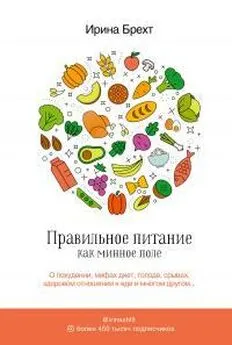
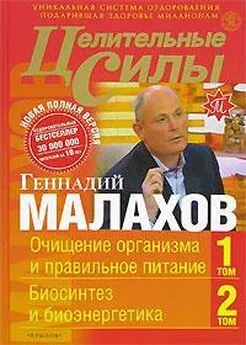

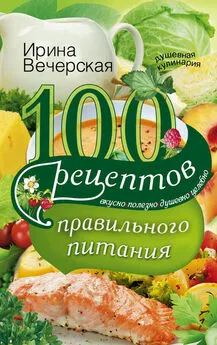
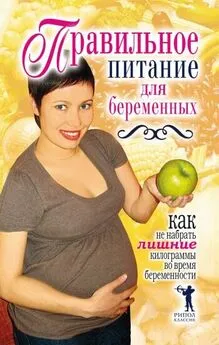
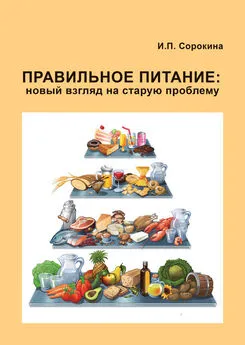
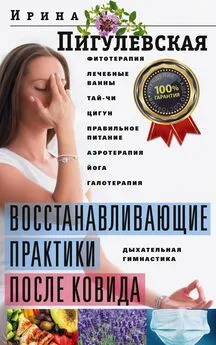
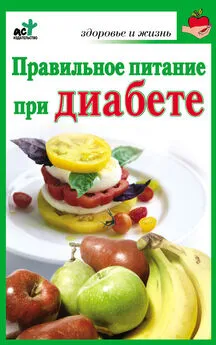
![Артем Каменистый - Правильное питание [СИ]](/books/1146496/artem-kamenistyj-pravilnoe-pitanie-si.webp)
